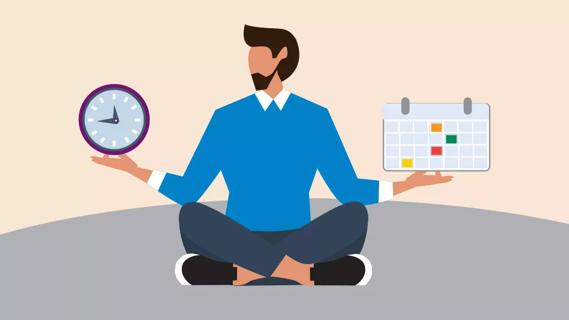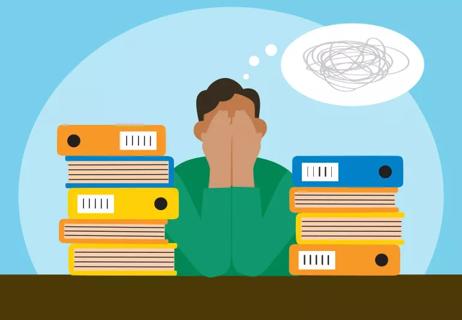Emotional resiliency affects how you deal with stress and challenges

Our mental strength is tested all the time. You may lose your job or might be dealing with the loss of a loved one.
Advertisement
Cleveland Clinic is a non-profit academic medical center. Advertising on our site helps support our mission. We do not endorse non-Cleveland Clinic products or services. Policy
But what exactly is “mental strength”?
“When we talk about mental strength, what we’re actually talking about is emotional resiliency, which is the ability to cope with stress and challenges in a healthy way,” says registered psychotherapist Natacha Duke, MA, RP.
And mental strength or resiliency is different from mental health.
“When some people hear the terms mental strength or resiliency, they may think it means the absence of mental illness, but that is not the case,” says Duke. “Many people with mental illness have learned to manage their condition in a healthy way. They enjoy good mental health and have cultivated emotional resilience. Similarly, someone can have no history of mental illness, but have both poor mental health and emotional resilience.”
Duke provides strategies on how to build your mental strength and bounce back from adversity.
Mental strength, or emotional resilience, is how effectively someone deals with challenges, pressures and stressors they may face.
Working on your mental strength can lead to greater life satisfaction and help protect against future mental health issues.
Why is that important?
Your mental strength can reduce the fear of failure when you work toward your goals. It can also help when you experience loss or face other challenging times. It’s how well you deal with certain situations and then how effectively and quickly you recover.
Advertisement
Your mental strength can be built up over time. The key is to develop healthy coping strategies, practice self-care and foster a compassionate inner dialogue.
“We also build our emotional resilience by going through rough times,” says Duke. “It’s important to look back and recognize yourself for getting through a challenge. I encourage my clients to acknowledge what they did well and what they can work on in the future.”
Want to work on building your resilience? Duke offers up these strategies.
Make sure you stop and ask yourself how you’re doing throughout the day, says Duke. Are you feeling anxious? Upset? Happy?
“Just to be able to check-in with yourself and name your feelings is so important,” says Duke. “Because without that mental check-in, you can’t start to give yourself more of what you might need.”
If you’re worried you offended an in-law or weren’t as patient with your child as you wanted to be, try practicing self-compassion.
The goal is to quiet your inner critic and be kind and gentle with yourself, the way you would a friend.
“Practice talking to yourself, not in a critical way, but in the way that you would talk to someone who you really care about and when they are facing a problem,” advises Duke. “And extend yourself that same love and compassion.”
Faced with a challenge? Take a deep breath and ask yourself if this is a true catastrophe or is it an inconvenience.
“We often interpret inconveniences as catastrophes,” says Duke. “Making that distinction can be helpful. Because if it’s an inconvenience, then you can start to problem-solve and brainstorm. Look at all the other times in your life when you’ve been able to solve problems successfully.”
When you’re anxious or depressed, you tend to avoid things you don’t want to do. You may also procrastinate. (Hello, work presentation.)
But Duke says instead of avoiding the situation or task altogether, work on taking small steps toward it. Can you block off one hour each day for that presentation?
“Practicing taking small steps will not only help to alleviate anxiety, but it can also improve your self-esteem and mood,” notes Duke.
During those moments when you’re stressed or feeling anxious, it’s a good idea to remember and practice mindfulness. Give yourself the space to breathe and think about your reactions.
Try box breathing or a one-minute meditation to stay in the moment.
“Learn strategies that help you be more present,” says Duke. “Learning to breathe, and be in the moment through your breath, can be very helpful.”
Advertisement
If something is bothering you, don’t keep your feelings bottled up. Work on vocalizing those feelings through assertive communication.
“Whether that’s through journaling, therapy or talking to your best friend, the practice of naming your feelings and communicating them effectively, as well as having a supportive and empowering social circle, is really important,” encourages Duke.
All those things you can do to lead a healthy life — exercise, a well-balanced diet and sleep — can also help when it comes to your emotional resilience.
“I don’t believe that you can have mental strength or emotional resiliency without having a proper sleep schedule,” says Duke. “Also, limit your social media use and news consumption.”
Your mental strength or resiliency can affect everything from motivation and relationships to performance, decision-making and productivity.
“We know that having good mental health can help reduce the risk of cancer, heart disease and dementia,” says Duke.
But don’t stress if you need to brush up on your mental strength toolkit, she adds.
“It’s never too late to learn effective strategies,” assures Duke. “You can commit to learning about healthy coping strategies and practicing different ways of coping with stress. You can practice them on your own, with a buddy or in therapy, but it’s never too late to develop these techniques.”
Advertisement
Learn more about our editorial process.
Advertisement

Connecting with others, going for a walk or focusing on sleep quality can help more than you might realize

You may not always notice it, but your mental health has just as big of an impact on your well-being as your physical health

Rethinking your Mondays might make the ‘Sunday scaries’ a thing of the past

Get to know the resources they have on and off campus, including their friends

College is a time of big transitions, intense stress and major lifestyle changes

Wishing you made a different decision can help you learn from your mistakes

This term from TikTok encourages positive affirmations around ‘luck’

Start a conversation, gently ask questions and offer help without judgment

Type 2 diabetes isn’t inevitable with these dietary changes

Applying a hot or cold compress can help with pain